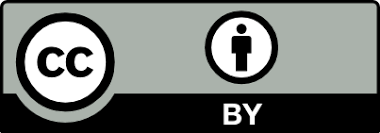NON-FUNGIBLE TOKENS
AN ARGUMENT FOR THE OWNERSHIP OF DIGITAL PROPERTY?
DOI:
https://doi.org/10.54934/ijlcw.v2i3.55Keywords:
digital property, digital ownership, digital assets, non-fungible tokens, blockchain technologyAbstract
The paper examines the concept of ownership and its potential application to digital assets, particularly Non-Fungible Tokens (“NFTs”). Technological advancements which allow the creation, storage, and sale of unique digital assets in a purely digital manner have raised many questions about the concept of ‘digital ownership’. However, the legal frameworks regulating the ownership, sale, and legal classification of digital assets have not evolved at the same pace as technology. This leads to legal uncertainty in the digital landscape, and weakened protection for the users of this technology, particularly in the European Union (“EU”). Although the concept of digital property has been discussed theoretically, practical recommendations for the implementation of this concept are still scarce. This paper discusses the concept of digital property after providing a contextual understanding of NFTs and the technology behind them. The paper aims to provide practical solutions based on analysis of possible approaches and an analysis of the current legal landscape.
The paper will first provide an overview of the use-cases of NFTs, as well as their characteristics. A comparative legal analysis is then applied to examine the legal classification of NFTs, and the ownership of digital property in jurisdictions across the globe. Following this, the potential implications of the lack of proper regulation will be discussed through a conceptual legal analysis. A theoretical exercise will then be conducted to examine the potential of NFTs to attract property rights, based on theories proposed through literature. Finally, recommendations are proposed for a harmonised EU-level framework for the legal classification of NFTs, and for the concept of digital property.
References
Allen, J. (2019). Property in digital coins. European Property Law Journal, 8(1)
http://dx.doi.org/10.1515/eplj-2019-0005
Allen, J. G., Rauchs, M., Blandin, A., & Bear, K. (2020). Legal and Regulatory Considerations for Digital Assets. Cambridge, United Kingdom: University of Cambridge Centre for Alternative Finance.
Allen, J. G., Wells, H., & Mauer, M. (2022). Cryptoassets in Private Law: Emerging Trends and Open Questions from the First 10 Years.SMU Centre for AI & Data Governance.
https://dx.doi.org/10.2139/ssrn.4206250 https://papers.ssrn.com/sol3/papers.cfm?abstract_id=4206250
Appelmans, A. (2022). The potential of NFTs in real estate markets The potential of NFTs in real estate markets. Crypto Valley Journal.
https://cvj.ch/en/focus/blockchain/nfts-in-the-real-estate-market/
Behzadi, E. (2022). The Fiction of NFTs and Copyright Infringement. University of Pennsylvania Law Review Online, 170 https://dx.doi.org/10.2139/ssrn.4025604
Bridge, M., Gulliger, L., Low, K., & McMeel, G. (2021). The Law of Personal Property (Third ed.). Sweet & Maxwell.
Brooks, K. J. (2022). Once-hot NFTs suddenly are not. CBS News. https://www.cbsnews.com/news/nft-sales-2022-nonfungible-cryptocurrency-bitcoin/
Busch, K. (2022). Non-Fungible Tokens (NFTs).Congressional Research Service. https://crsreports.congress.gov/product/pdf/R/R47189
Chiu, I. H., & Allen, J. G. (2022). Exploring the Assetisation and Financialisation of Non-Fungible Tokens (NFTs): Opportunities and Regulatory Implications. Banking and Finance Law Review, Upcoming https://dx.doi.org/10.2139/ssrn.4051912
Cutts, T. (2021). Possessable Digital Assets.LSE Law.
https://papers.ssrn.com/sol3/papers.cfm?abstract_id=3895404
Dalai, S. S. (2022). A study of NFTs (Non-Fungible Tokens)
https://www.diva-portal.org/smash/get/diva2:1678476/FULLTEXT01.pdf
DeCosimo, M. C., & Riley, C. (2022). The tokenization of real estate: An introduction of fractional real estate investment. Lexology.
https://www.lexology.com/library/detail.aspx?g=2e5855ee-eeec-4c4a-a98b-45a6af5ac016
Douglas, S., & McFarlane, B. (2013). Defining Property Rights. In J. E. Penner, & H. E. Smith (Eds.), Philosophical Foundations of Property Law. Oxford University Press.
Edelman, J. (2015). Property rights to our bodies and their products. University of Western Australia Law Review, 39(2)
http://classic.austlii.edu.au/au/journals/UWALawRw/2015/20.html
Engelmann, C., & Brunotte, N. (2022). NFT Projects in Germany – legal issues. Lexology. https://www.lexology.com/library/detail.aspx?g=a5fbc01c-3807-4b95-be04-7e579acaf9d4
England & Wales Law Commission. (2022). Digital Assets - Consultation Paper. London, United Kingdom: UK Law Commission.
https://www.lawcom.gov.uk/project/digital-assets/
Ethereum. (2022). ERC-721 Non-Fungible Token Standard. Ethereum. https://ethereum.org/en/developers/docs/standards/tokens/erc-721/
EU Blockchain Observatory and Forum. (2021). Demystifying Non-Fungible Tokens (NFTs).EU Blockchain Observatory and Forum.
https://www.eublockchainforum.eu/sites/default/files/reports/DemystifyingNFTs_November%202021_2.pdf
Fairfield, J. (2017). Owned: Property, Privacy and the New Digital Serfdom. Cambridge University Press.
Fairfield, J. (2022). Tokenized: The Law of Non-Fungible Tokens and Unique Digital Property. Indiana Law Journal, 97(4)
https://www.repository.law.indiana.edu/ilj/vol97/iss4/4
Faverio, M., & Massarat, N. (2022). 46% of Americans who have invested in cryptocurrency say it’s done worse than expected.Pew Research Center.
Fox, D., & Green, S. (2019). Cryptocurrencies in Public and Private Law. Oxford University Press.
Garcia-Teruel, R. M., & Simon-Moreno, H. (2021). The digital tokenization of property rights. A comparative perspective. Computer Law & Security Review, 41 https://doi.org/10.1016/j.clsr.2021.105543
Goldman, J. (2022). Fact: Most NFT Projects Convey Ownership of, and Valuable Intellectual Property Rights in, Digital Art. Lexology.
https://www.lexology.com/library/detail.aspx?g=285b1de3-9a0f-45e0-88e1-56429c7139e7
Gray, K. (1994). Equitable Property. Current Legal Problems, 47(2) https://doi.org/10.1093/clp/47.Part_2.157
Graziadei, M. (2017). The structure of property ownership and the common law/civil law divide. In M. Graziadei, & L. Smith (Eds.), Comparative Property Law: Global Perspectives. Edward Elgar Publishing.
Guadamuz, A. (2021). The treachery of images: non-fungible tokens and copyright. Journal of Intellectual Property Law & Practice, 16(12)
https://doi.org/10.1093/jiplp/jpab152
Guadamuz, A. (2022). Perspectives on NFTs from the EU and UK. The Columbia Journal of Law & the Arts, 45(3) https://doi.org/10.52214/jla.v45i3.10010
Howcroft, E. (2021, ). NFT sales surge to $10.7 bln in Q3 as crypto asset frenzy hits new highs. Reuters
Ibanez, L., Hoffman, M. R., & Choudhry, T. (2022). Blockchains and Digital Assets.EU Blockchain Forum.
Kharif, O. (2022). NFTs Have 'Fallen Off the Cliff' as Sales Sink to Lowest Levels in a Year. Bloomberg.
Kulms, R. (2020). Blockchains: Private Law Matters. Singapore Journal of Legal Studies, March 2020 https://ssrn.com/abstract=3646920
Kumar, S., McLaughlin, J., Xie, A., Nicolet-Serra, L., Muller, A., Rigg, G., Curreri, E. & Green, K. (2022). The NFT Collection: A brave NFT world - a regulatory review of NFTs (Part 2). K&L Gates IP Law Watch.
Kumar, S., Rigg, G., & Green, K. (2022). The NFT Collection: The Rise of NFTs - Copyright Strikes Back? (Part 3). The National Law Review, 12(256)
https://www.natlawreview.com/article/nft-collection-rise-nfts-copyright-strikes-back-part-3
Kumar, S., Rigg, G., Green, K. & Mullen, R. (2022). The NFT Collection: NFT Basics and Opportunities (Part 1). K&L Gates IP Law Watch.
https://www.iplawwatch.com/2022/06/the-nft-collection-nft-basics-and-opportunities-part-1/
Liechtenstein Impuls. (2020). One model to regulate all tokens. Liechtenstein Impuls. https://impuls-liechtenstein.li/en/2020/10/27/one-model-to-regulate-all-tokens/
Liechtenstein National Administration, (2019). Report and Application of the Government to the Parliament of the Principality of Liechtenstein Concerning the Creation of a Law on Tokens and TT Service Providers and the Amendment of Other Laws. Liechtenstein National Administration (LLV).
https://impuls-liechtenstein.li/wp-content/uploads/2021/02/Report-and-Application-TVTG-extract.pdf
Lins, B., & Praicheux, S. (2021). Digital and Blockchain-Based Legal Regimes: An EEA Case Study Based on Innovative Legislations - Comparison of French and Liechtenstein Domestic Regulations. Financial Law Review, 22(2)
https://www.ejournals.eu/pliki/art/19446/
Lorenz, M., Marz, T. & Jagusch, A. (2022). NFTs in metaverse gaming: Taking a view on Regulatory, IP and Transactional implications from a German law perspective. Lexology. https://www.lexology.com/library/detail.aspx?g=4d18174e-c980-45c4-9969-487d5dada96d
Luca, A. A. (2022). Future use cases of NFTs - Industry verticals to be disrupted next. Fostec & Company. https://www.fostec.com/en/future-use-cases-nft/
Mao, C. (2022). Imperfect Digital Certificates of Provenance - A Categorical Risk-Based Approach to Non-Fungible Tokens (NFTs). SSRN Electronic Journal, https://dx.doi.org/10.2139/ssrn.4060436
Marinotti, J. (2021). Tangibility as Technology. Georgia State University Law Review, 37(3) https://readingroom.law.gsu.edu/gsulr/vol37/iss3/3
Merrill, T. W. (2017). Formalization, Possession, and Ownership.Columbia Law School.
https://scholarship.law.columbia.edu/cgi/viewcontent.cgi?article=4329&context=faculty_scholarship
Michels, J. D., & Millard, C. (2022). The New Things: Property Rights in Digital Files? The Cambridge Law Journal, 20(1)
https://doi.org/10.1017/S0008197322000228
Moon, K. (2018), Is Software Goods, or even Property? A Recommendation for Sui Generis Categories. Society for Computers and Law Magazine,
Moringiello, J. M., & Odinet, C. K. (2021). The Property Law of Tokens. Florida Law Review, 74(607) https://dx.doi.org/10.2139/ssrn.3928901
Moritz, L., Pao, W. K. & Abbott, B. (2022). The Taxonomy of NFTs. Lexology. https://www.lexology.com/library/detail.aspx?g=90bc74a3-46e3-4cc6-a990-f7463f531373
Nevi, G. (2022). NFT - Non-Fungible Tokens how react the consumers? An exploratory analysis for a future integrated acceptance model. Unpublished manuscript. http://archives.marketing-trends-congress.com/2022/pages/PDF/023.pdf
Palka, P. (2016). Redefining 'property' in the digital era: when online do as the Romans did. EUI Law. https://cadmus.eui.eu/handle/1814/40366
Palka, P. (2017). Virtual Property - Towards a General Theory
https://cadmus.eui.eu/bitstream/handle/1814/49664/Palka_2017.pdf?sequence=1
Pierre, B. (1997). Classification of Property and Conceptions of Ownerships in Civil and Common Law. Revue Generale De Droit, 28(2)
https://www.erudit.org/fr/revues/rgd/1997-v28-n2-rgd02413/1035639ar.pdf
Pinto-Gutierrez, C., Gaitan, S., Jaramillo, D., & Velasquez, S. (2022). The NFT Hype: What Draws Attention to Non-Fungible Tokens? Mathematics, 10(3)
https://www.mdpi.com/2227-7390/10/3/335/html
Popescu, A. (2021). Non-Fungible Tokens (NFT) - Innovation beyond the craze. Proceedings of Engineering & Technology Journal, 66
https://www.academia.edu/50920483/Non_Fungible_Tokens_NFT_Innovation_beyond_the_craze
Shilina, S. (2022). A comprehensive study on Non-Fungible Tokens (NFTs): Use cases, ecosystem, benefits & challenges. Medium.
Sophir, E. L., & Wang, E. (2021). Not by the same token: NFTs in Supply Chain. Foley & Lardner LLP.
https://www.foley.com/en/insights/publications/2021/11/not-by-the-same-token-nfts-in-supply-chain
Stein Smith, S. (2022). NFT Meltdowns are paving the way for better use cases. Forbes. https://www.forbes.com/sites/seansteinsmith/2022/06/19/nft-meltdowns-are-paving-the-way-for-better-use-cases/?sh=3fb5f9640a46
Steiner, A. (2021). The Paper It's Printed On: NFTs, Ownership and Conceptual Art. SSRN Electronic Journal, https://dx.doi.org/10.2139/ssrn.3997352
Szilagyi, K. (2018). A Bundle of Blockchains? Digitally Disrupting Property law. Cumberland Law Review, 48(9)
https://papers.ssrn.com/sol3/papers.cfm?abstract_id=3161151
Toygar, A., Rohm Jr., C. T., & Zhu, J. (2013). A New Asset Type: Digital Assets. Journal of International Technology and Information Management, 22(4)
https://scholarworks.lib.csusb.edu/jitim/vol22/iss4/7
UK Jurisdiction Task Force. (2019). Legal statement on cryptoassets and smart contracts.UK Jurisdiction Task Force.
van Erp, S. (2017). Ownership of Data: the numerus clausus of legal objects. Brigham-Kanner Property Rights Conference Journal, (6)
Downloads
Published
How to Cite
Issue
Section
License
Copyright (c) 2023 Matteo Alessandro

This work is licensed under a Creative Commons Attribution 4.0 International License.















